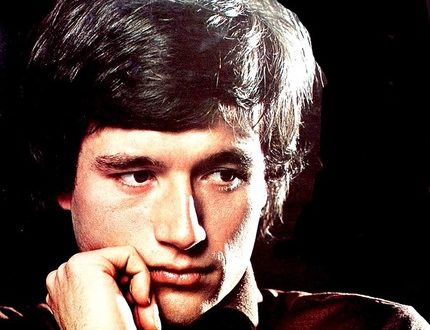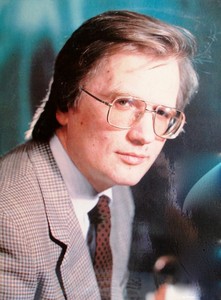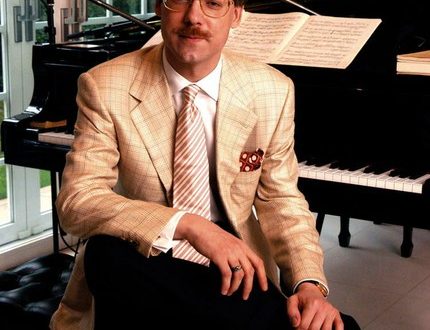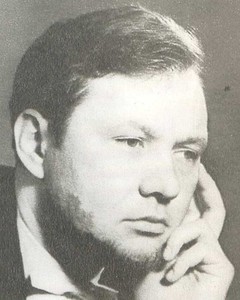
Sergey Leonidovich Dorensky |
Sergei Dorensky

Sergei Leonidovich Dorensky says that he was instilled with a love for music from an early age. Both his father, a well-known photojournalist in his time, and his mother, both selflessly loved art; at home they often played music, the boy went to the opera, to concerts. When he was nine years old, he was brought to the Central Music School at the Moscow Conservatory. The decision of the parents was correct, in the future it was confirmed.
His first teacher was Lydia Vladimirovna Krasenskaya. However, from the fourth grade, Sergei Dorensky had another teacher, Grigory Romanovich Ginzburg became his mentor. All further student biography of Dorensky is connected with Ginzburg: six years under his supervision at the Central School, five at the conservatory, three in graduate school. “It was an unforgettable time,” says Dorensky. “Ginsburg is remembered as a brilliant concert player; not everyone knows what kind of teacher he was. How he showed in the class the works being learned, how he talked about them! Next to him, it was impossible not to fall in love with pianism, with the sound palette of the piano, with the seductive mysteries of piano technique … Sometimes he worked very simply – he sat down to the instrument and played. We, his disciples, observed everything close, from a short distance. They saw everything as if from behind the scenes. Nothing else was required.
… Grigory Romanovich was a gentle, delicate man, – continues Dorensky. – But if something did not suit him as a musician, he could flare up, severely criticize the student. More than anything else, he was afraid of false pathos, theatrical pomposity. He taught us (together with me at Ginzburg such gifted pianists as Igor Chernyshev, Gleb Akselrod, Alexei Skavronsky studied) modesty of behavior on the stage, simplicity and clarity of artistic expression. I will add that Grigory Romanovich was intolerant of the slightest flaws in the external decoration of the works performed in the class – we were hard hit for sins of this kind. He did not like either excessively fast tempos or rumbling sonorities. He did not recognize exaggerations at all … For example, I still get the greatest pleasure from playing the piano and mezzo-forte – I have had this since my youth.
Dorensky was loved at school. Gentle by nature, he immediately endeared himself to those around him. It was easy and simple with him: there was not a hint of swagger in him, not a hint of self-conceit, which happens to be found among successful artistic youth. The time will come, and Dorensky, having passed the time of youth, will take the post of dean of the piano faculty of the Moscow Conservatory. The post is responsible, in many respects very difficult. It must be said directly that it is the human qualities – kindness, simplicity, responsiveness of the new dean – that will help him establish himself in this role, win the support and sympathy of his colleagues. The sympathy that he inspired in his schoolmates.
In 1955, Dorensky first tried his hand at an international competition of performing musicians. In Warsaw, at the Fifth World Festival of Youth and Students, he participates in a piano competition and wins first prize. A start was made. A continuation followed in Brazil, at an instrumental competition in 1957. Dorensky achieved a truly wide popularity here. It should be noted that the Brazilian tournament of young performers, to which he was invited, was, in essence, the first event of its kind in Latin America; Naturally, this attracted increased attention from the public, the press, and professional circles. Dorensky performed successfully. He was awarded the second prize (the Austrian pianist Alexander Enner received the first prize, the third prize went to Mikhail Voskresensky); since then, he has gained a solid popularity with the South American audience. He will return to Brazil more than once – both as a concert player and as a teacher who enjoys authority among the local pianistic youth; here he will always be welcome. Symptomatic, for example, are the lines of one of the Brazilian newspapers: “… Of all the pianists … who performed with us, no one aroused so much sympathy from the public, such unanimous delight as this musician. Sergey Dorensky has a deep intuition and musical temperament, which give his playing a unique poetry. (To understand each other // Soviet culture. 1978. Jan. 24).
Success in Rio de Janeiro opened the way for Dorensky to the stages of many countries of the world. A tour began: Poland, the GDR, Bulgaria, England, the USA, Italy, Japan, Bolivia, Colombia, Ecuador … At the same time, his performing activities in his homeland are expanding. Outwardly, Dorensky’s artistic path looks quite well: the pianist’s name is becoming more and more popular, he has no visible crises or breakdowns, the press favors him. Nevertheless, he himself considers the end of the fifties – the beginning of the sixties the most difficult in his stage life.
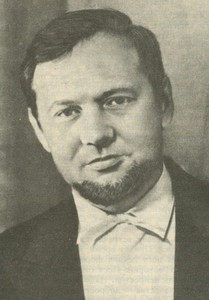
“The third, last in my life and, perhaps, the most difficult “competition” has begun – for the right to lead an independent artistic life. The former ones were easier; this “competition” – long-term, continuous, at times exhausting … – decided whether or not I should be a concert performer. I immediately ran into a number of problems. Primarily – that play? The repertoire turned out to be small; not much was recruited during the years of study. It was necessary to replenish it urgently, and in the conditions of intensive philharmonic practice, this is not easy. Here is one side of the matter. Another as play. In the old manner, it seems to be impossible – I am no longer a student, but a concert artist. Well, what does it mean to play in a new way, differentlyI didn’t imagine myself very well. Like many others, I started with a fundamentally wrong thing – with the search for some special “expressive means”, more interesting, unusual, bright, or something … Soon I noticed that I was going in the wrong direction. You see, this expressiveness was brought into my game, so to speak, from the outside, but it needs to come from within. I remember the words of our wonderful director B. Zakhava:
“… The decision of the form of the performance always lies deep at the bottom of the content. To find it, you need to dive to the very bottom – swimming on the surface, you will not find anything ” (Zakhava B.E. The skill of the actor and director. – M., 1973. P. 182.). The same goes for us musicians. Over time, I understood this well.
He had to find himself on the stage, find his creative “I”. And he managed to do it. First of all, thanks to talent. But not only. It should be noted that with all his simplicity of heart and breadth of soul, he never ceased to be an integral, energetic, consistent, hardworking nature. This ultimately brought him success.
To begin with, he decided in the circle of musical works closest to him. “My teacher, Grigory Romanovich Ginzburg, believed that almost every pianist has his own stage “role”. I hold, in general, similar views. I think that during our studies, we, the performers, should try to cover as much music as possible, try to replay everything that is possible … In the future, with the beginning of real concert and performing practice, one should go on stage only with what is most successful. He was convinced at his very first performances that he succeeded most of all in Beethoven’s Sixth, Eighth, Thirty-first Sonatas, Schumann’s Carnival and Fantastic Fragments, mazurkas, nocturnes, etudes and some other pieces by Chopin, Liszt’s Campanella and Liszt’s adaptations Schubert’s songs, Tchaikovsky’s G Major Sonata and The Four Seasons, Rachmaninov’s Rhapsody on a Theme of Paganini and Barber’s Piano Concerto. It is easy to see that Dorensky gravitates not to one or another repertoire and style layers (say, classics – romance – modernity …), but to certain groups works in which his individuality reveals itself most fully. “Grigory Romanovich taught that one should only play what gives the performer a sense of inner comfort, “adaptation”, as he said, that is, complete merging with the work, the instrument. That’s what I try to do…”
Then he found his performing style. The most pronounced in it was lyrical beginning. (A pianist can often be judged by his artistic sympathies. Dorensky names among his favorite artists, after G. R. Ginzburg, K. N. Igumnov, L. N. Oborin, Art. Rubinstein, from the younger M. Argerich, M. Pollini, this list is indicative in itself.) Criticism notes the softness of his game, the sincerity of poetic intonation. Unlike a number of other representatives of pianistic modernity, Dorensky does not show a particular inclination towards the sphere of piano toccato; As a concert performer, he does not like either the “iron” sound constructions, or the thunderous peals of fortissimo, or the dryish and sharp chirping of finger motor skills. People who often attended his concerts assure that he never took a single hard note in his life…
But from the very beginning he showed himself to be a born master of the cantilena. He showed that he can charm with a plastic sound pattern. I discovered a taste for gently muted, silvery iridescent pianistic colors. Here he acted as the heir to the original Russian piano-performing tradition. “Dorensky has a beautiful piano with many different shades, which he skillfully uses” (Modern pianists. – M., 1977. P. 198.), Reviewers wrote. So it was in his youth, the same thing now. He was also distinguished by subtlety, a loving roundness of phrasing: his playing was, as it were, adorned with elegant sound vignettes, smooth melodic bends. (In a similar sense, again, he plays today.) Probably, in nothing Dorensky did not show himself to such an extent as a student of Ginzburg, as in this skillful and careful polishing of sound lines. And it is not surprising, if we recall what he said earlier: “Grigory Romanovich was intolerant of the slightest flaws in the external decoration of the works performed in the class.”
These are some of the strokes of Dorensky’s artistic portrait. What impresses you the most about it? At one time, L. N. Tolstoy liked to repeat: in order for a work of art to deserve respect and be liked by people, it must be good, went straight from the heart of the artist. It is wrong to think that this applies only to literature or, say, theater. This has the same relation to the art of musical performance as to any other.
Along with many other pupils of the Moscow Conservatory, Dorensky chose for himself, in parallel with the performance, another path – pedagogy. Like many others, over the years it has become increasingly difficult for him to answer the question: which of these two paths has become the main one in his life?
He has been teaching youth since 1957. Today he has more than 30 years of teaching behind him, he is one of the prominent, respected professors at the conservatory. How does he solve the age-old problem: the artist is a teacher?
“Honestly, with great difficulty. The fact is that both professions require a special creative “mode”. With age, of course, comes experience. Many problems are easier to solve. Although not all… I sometimes wonder: what is the biggest difficulty for those whose specialty is teaching music? Apparently, after all – to make an accurate pedagogical “diagnosis”. In other words, “guess” the student: his personality, character, professional capabilities. And accordingly build all further work with him. Such musicians as F. M. Blumenfeld, K. N. Igumnov, A. B. Goldenweiser, G. G. Neuhaus, S. E. Feinberg, L. N. Oborin, Ya. I. Zak, Ya. V. Flier…”
In general, Dorensky attaches great importance to mastering the experience of outstanding masters of the past. He often starts talking about this – both as a teacher in the circle of students, and as dean of the piano department of the conservatory. As for the last position, Dorensky has been holding it for a long time, since 1978. He came to the conclusion during this time that the work, in general, to his liking. “All the time you are in the thick of conservative life, you communicate with living people, and I like it, I won’t hide it. The worries and troubles, of course, are innumerable. If I feel relatively confident, it is only because I try to rely on the artistic council of the piano faculty in everything: the most authoritative of our teachers are united here, with the help of which the most serious organizational and creative issues are resolved.
Dorensky speaks about pedagogy with enthusiasm. He came into contact with a lot in this area, knows a lot, thinks, worries …
“I am concerned about the idea that we, educators, are retraining today’s youth. I would not like to use the banal word “training”, but, honestly, where will you go from it?
However, we also need to understand. Students today perform a lot and often – at competitions, class parties, concerts, exams, etc. And we, it is we, are personally responsible for their performance. Let someone try to mentally put themselves in the place of a person whose student, being, say, a participant in the Tchaikovsky Competition, comes out to play on the stage of the Great Hall of the Conservatory! I’m afraid that from the outside, without having experienced similar sensations myself, you won’t understand this … Here we are, teachers, and we try to do our job as thoroughly, soundly, and thoroughly as possible. And as a result… As a result, we transgress some limits. We are depriving many young people of creative initiative and independence. This happens, of course, unintentionally, without a shadow of intent, but the essence remains.
The trouble is that our pets are stuffed to the limit with all sorts of instructions, advice, and instructions. They all know and understand: they know what they need to do in the works they perform, and what they should not do, is not recommended. They own everything, they all know how, except for one thing – to liberate themselves internally, to give free rein to intuition, fantasy, stage improvisation, and creativity.
Here is the problem. And we, at the Moscow Conservatory, often discuss it. But not everything depends on us. The main thing is the individuality of the student himself. How bright, strong, original she is. No teacher can create individuality. He can only help her open up, show herself from the best side.
Continuing the topic, Sergei Leonidovich dwells on one more question. He emphasizes that the inner attitude of the musician, with which he enters the stage, is extremely important: it is important what position does he place himself in relation to the audience. Whether a young artist’s self-esteem is developed, says Dorensky, whether this artist is capable of demonstrating creative independence, self-sufficiency, all this directly affects the quality of the game.
“Here, for example, there is a competitive audition … It is enough to look at the majority of the participants to see how they try to please, to impress those present. How they strive to win the sympathy of the public and, of course, the members of the jury. Actually, no one hides this … God forbid “to be guilty” of something, to do something wrong, not to score points! Such an orientation – not to Music, and not to Artistic Truth, as the performer feels and understands it, but to the perception of those who listen to him, evaluate, compare, distribute points – is always fraught with negative consequences. She clearly slips into the game! Hence the sediment of dissatisfaction in people who are sensitive to the truth.
That’s why I usually say to students: think less about others when you go on stage. Less torment: “Oh, what will they say about me …” You need to play for your own pleasure, with joy. I know from my own experience: when you do something willingly, this “something” almost always works out and succeeds. On the stage, you make sure of this with particular clarity. If you perform your concert program without enjoying the very process of making music, the performance as a whole turns out to be unsuccessful. And vice versa. Therefore, I always try to awaken in the student a sense of inner satisfaction from what he does with the instrument.
Each performer may have some problems and technical errors during the performance. Neither debutants nor experienced masters are immune from them. But if the latter usually know how to react to an unforeseen and unfortunate accident, then the former, as a rule, are lost and begin to panic. Therefore, Dorensky believes that it is necessary to specially prepare the student in advance for any surprises on the stage. “It is necessary to convince that there is nothing, they say, terrible, if this suddenly happens. Even with the most famous artists, this happened – with Neuhaus and Sofronitsky, and with Igumnov, and with Arthur Rubinstein … Somewhere sometimes their memory failed them, they could confuse something. This did not prevent them from being the favorites of the public. Moreover, no catastrophe will occur if a student inadvertently “stumbles” on the stage.
The main thing is that this does not spoil the mood of the player and thus would not affect the rest of the program. It is not a mistake that is terrible, but a possible psychological trauma resulting from it. This is exactly what we have to explain to the youth.
By the way, about “injuries”. This is a serious matter, and therefore I will add a few more words. “Injuries” must be feared not only on stage, during performances, but also in the course of ordinary, everyday activities. Here, for example, a student for the first time brought to the lesson a play he had learned on his own. Even if there are many shortcomings in his game, you should not give him a dressing down, criticize him too harshly. This may have further negative consequences. Especially if this student is from among the fragile, nervous, easily vulnerable natures. Inflicting a spiritual wound on such a person is as easy as shelling pears; curing it later is much more difficult. Some psychological barriers are formed, which it turns out to be very difficult to overcome in the future. And the teacher has no right to ignore this. In any case, he should never tell a student: you won’t succeed, it’s not given to you, it won’t work, etc. ”
How long do you have to work on the piano every day? – young musicians often ask. Realizing that it is hardly possible to give a single and comprehensive answer to this question, Dorensky at the same time explains, how in what direction should seek the answer to it. Search, of course, to each for himself:
“To work less than the interests of the cause require is not good. More is also not good, which, by the way, our outstanding predecessors – Igumnov, Neuhaus and others – spoke about more than once.
Naturally, each of these time frames will be their own, purely individual. It hardly makes sense to be equal to someone else here. Svyatoslav Teofilovich Richter, for example, studied in previous years for 9-10 hours a day. But it’s Richter! He is unique in every way and trying to copy his methods is not only pointless but also dangerous. But my teacher, Grigory Romanovich Ginzburg, did not spend much time at the instrument. In any case, “nominally”. But he was constantly working “in his mind”; in this respect he was an unsurpassed master. Mindfulness is so helpful!
I am absolutely convinced that a young musician must be specially taught to work. To introduce the art of effective organization of homework. We educators often forget about this, focusing exclusively on performance problems – on how to play any essay, how to interpret one author or another, and so on. But that’s the other side of the issue.”
But how can one find that vacillating, vaguely distinguishable, indefinite line in its outlines, which separates “less than the interests of the case require” from “more”?
“There is only one criterion here: the clarity of awareness of what you are doing at the keyboard. Clarity of mental actions, if you like. As long as the head works well, classes can and should continue. But not beyond that!
Let me tell you, for example, what the performance curve looks like in my own practice. At first, when I first start classes, they are a kind of warm-up. The efficiency is not yet too high; I play, as they say, not at full strength. It is not worth taking on difficult works here. It is better to be content with something easier, simpler.
Then gradually warm up. You feel that the quality of performance is improving. After some time – I think after 30-40 minutes – you reach the peak of your capabilities. You stay at this level for about 2-3 hours (taking, of course, small breaks in the game). It seems that in scientific language this stage of work is called a “plateau”, isn’t it? And then the first signs of fatigue appear. They grow, become more noticeable, more tangible, more persistent – and then you have to close the lid of the piano. Further work is meaningless.
It happens, of course, that you just don’t want to do it, laziness, lack of concentration overcomes. Then an effort of will is required; can’t do without it either. But this is a different situation and the conversation is not about it now.
By the way, I rarely meet today among our students people who are lethargic, weak-willed, demagnetized. The youth is now working hard and hard, it is not necessary to goad them. Everyone understands: the future is in his own hands and does everything in his power – to the limit, to the maximum.
Here, rather, a problem of a different kind arises. Due to the fact that they sometimes do too much – due to the excessive retraining of individual works and entire programs – freshness and immediacy in the game are lost. Emotional colors fade. Here it is better to leave the pieces being learned for a while. Switch to another repertoire … “
Dorensky’s teaching experience is not limited to the Moscow Conservatory. He is quite often invited to conduct pedagogical seminars abroad (he calls it “tour pedagogy”); to this end, he traveled in different years to Brazil, Italy, Australia. In the summer of 1988, he first acted as a consultant teacher at the summer courses of higher performing arts in Salzburg, at the famous Mozarteum. The trip made a great impression on him – there were many interesting young people from the USA, Japan, and from a number of Western European countries.
Once Sergei Leonidovich calculated that during his life he had a chance to listen to more than two thousand young pianists sitting at the jury table at various competitions, as well as at pedagogical seminars. In a word, he has a good idea of the situation in the world piano pedagogy, both Soviet and foreign. “Still, at such a high level as we have, with all our difficulties, unresolved problems, even miscalculations, they do not teach anywhere in the world. As a rule, the best artistic forces are concentrated in our conservatories; not everywhere in the West. Many major performers either shy away from the burden of teaching there altogether, or confine themselves to private lessons. In short, our youth have the most favorable conditions for growth. Although, I can’t help but repeat, those who work with her sometimes have a very difficult time.”
Dorensky himself, for example, can now completely devote himself to the piano only in the summer. Not enough, of course, he is aware of this. “Pedagogy is a great joy, but often it, this joy, is at the expense of others. There’s nothing to be done here.”
* * *
Nevertheless, Dorensky does not stop his concert work. As far as possible, he tries to keep it in the same volume. He plays where he is well known and appreciated (in the countries of South America, in Japan, in many cities of Western Europe and the USSR), he discovers new scenes for himself. In the 1987/88 season, he actually brought Chopin’s Second and Third Ballades to the stage for the first time; Around the same time, he learned and performed – again for the first time – Shchedrin’s Preludes and Fugues, his own piano suite from the ballet The Little Humpbacked Horse. At the same time, he recorded several Bach chorales on the radio, arranged by S. Feinberg. Dorensky’s new gramophone records are published; Among those released in the XNUMXs are CDs of Beethoven’s sonatas, Chopin’s mazurkas, Rachmaninov’s Rhapsody on a Theme of Paganini and Gershwin’s Rhapsody in Blue.
As always happens, Dorensky succeeds in some things more, something less. Considering his programs of recent years from a critical angle, one could make certain claims against the first movement of Beethoven’s “Pathetique” sonata, the finale of “Lunar”. It’s not about some performance problems and accidents that could be or not be. The bottom line is that in pathos, in the heroic images of the piano repertoire, in music of high dramatic intensity, Dorensky the pianist generally feels somewhat embarrassed. It’s not quite here his emotional-psychological worlds; he knows it and candidly admits it. So, in the “Pathetic” sonata (first part), in “Moonlight” (third part) Dorensky, with all the advantages of sound and phrasing, sometimes lacks real scale, drama, powerful volitional impulse, conceptuality. On the other hand, many of Chopin’s works make a charming impression on him – the same mazurkas, for example. (The record of mazurkas is perhaps one of Dorensky’s best.) Let him, as an interpreter, speak here about something familiar, already known to the listener; he does this with such naturalness, spiritual openness and warmth that it is simply impossible to remain indifferent to his art.
However, it would be wrong to talk about Dorensky today, let alone judge his activities, having only a concert stage in sight. A teacher, the head of a large educational and creative team, a concert artist, he works for three and must be perceived simultaneously in all guises. Only in this way can one get a real idea of the scope of his work, of his real contribution to the Soviet piano-performing culture.
G. Tsypin, 1990



